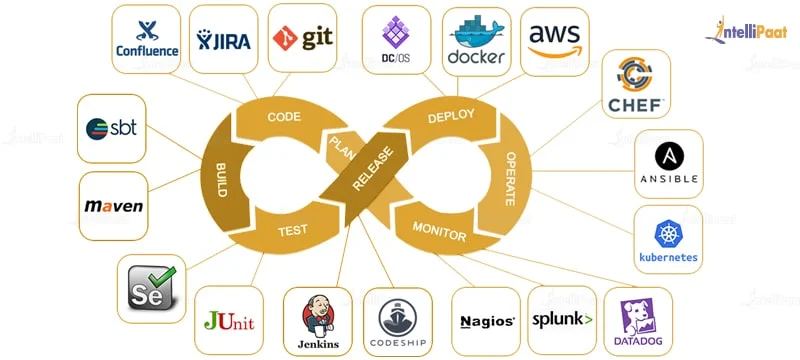What is DevOps ?
 Parijat Ambilwade
Parijat Ambilwade
DevOps is a collaboration between Development and IT Operations to make software production and Deployment in automated & repeatable way. DevOps helps increase the organization’s speed to deliver software applications and services.
It allows organizations to serve their customers better and compete more strongly in the market. In simple words, DevOps can be defined as an alignment of development and IT operations with better communication and collaboration.
Why DevOps is Needed?
Before DevOps, the development and operation team worked in complete isolation.
Testing and Deployment were isolated activities done after design-build. Hence they consumed more time than actual build cycles.
Manual code deployment leads to human errors in production.
Coding & operation teams have separate timelines and are not synch, causing further delays.
Advantages of DevOps !
DevOps allows Agile Development Teams to implement Continuous Integration and Continuous Delivery (CI/CD), which helps them launch products faster into the market.
Predictability: DevOps offers a significantly lower failure rate for new releases.
Reproducibility: Version everything so that earlier versions can be restored anytime.
Maintainability: Effortless recovery process in the event of a new release crashing or disabling the current system.
Resiliency: The Operational state of the software system is more stable, secure, and changes are auditable.
Time to market: DevOps reduces the time to market up to 50% through streamlined software delivery. It is particularly the case for digital and mobile applications.
DevOps Life cycle?
The various phases such as continuous development, continuous integration, continuous testing, continuous deployment, and continuous monitoring constitute DevOps Life cycle.
1. Continuous Development
This is the phase that involves ‘planning‘ and ‘coding‘ of the software. The vision of the project is decided during the planning phase and the developers begin developing the code for the application.
The code can be written in any language, but it is maintained by using Version Control tools. Maintaining the code is referred to as Source Code Management. The most popular tools used are Git, SVN, Mercurial, CVS, and JIRA.
2. Continuous Testing
This is the stage where the developed software is continuously tested for bugs. For Continuous testing, automation testing tools like Selenium, TestNG, JUnit, etc are used.
3. Continuous Integration
This stage is the heart of the entire DevOps life cycle. It is a software development practice in which the developers require to commit changes to the source code more frequently. Every commit is then built and this allows early detection of problems if they are present.
The code supporting new functionality is continuously integrated with the existing code. Since there is continuous development of software, the updated code needs to be integrated continuously as well as smoothly with the systems to reflect changes to the end-users.
Jenkins is a very popular tool used in this phase.
4. Continuous Deployment
This is the stage where the code is deployed to the production servers. It is also important to ensure that the code is correctly deployed on all the servers.
Since the new code is deployed continuously, configuration management tools play an important role in executing tasks quickly and frequently. Some popular tools that are used here are Puppet, Chef, SaltStack, and Ansible.
5. Continuous Monitoring
This is a very crucial stage of the DevOps life cycle where you continuously monitor the performance of your application. Here vital information about the use of the software is recorded.
The root cause of any issue is determined in this phase. It maintains the security and availability of the services. Also if there are network issues, they are resolved in this phase. It helps us automatically fix the problem as soon as they are detected.
The popular tools used for this are Splunk, ELK Stack, Nagios, NewRelic and Sensu.
Conclusion
Today, the DevOps lifecycle is being implemented in more organizations to optimize the entire software development process. The main focus of DevOps is on collaboration between the developers and the operations team to ensure speed and collaboration as well as meeting customer requirements.
Subscribe to my newsletter
Read articles from Parijat Ambilwade directly inside your inbox. Subscribe to the newsletter, and don't miss out.
Written by
